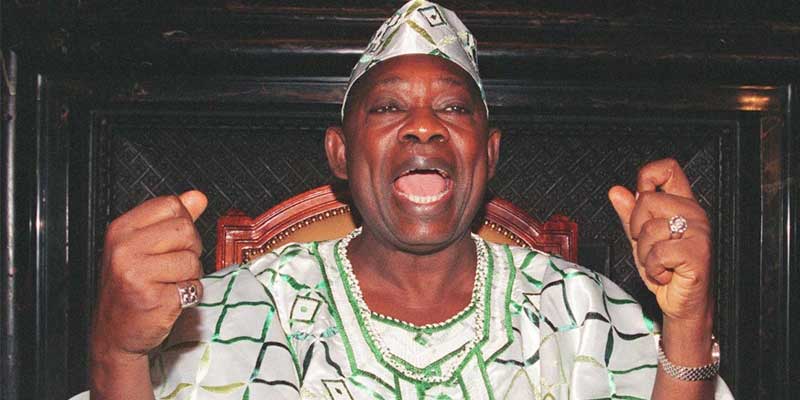Alhaja Sinatu Ojikutu, a former deputy governor of Lagos State, has amplified the call for the formal recognition of Chief Moshood Abiola as a former President of Nigeria. Abiola’s victory in the 1993 presidential election, which was tragically annulled, remains a pivotal moment in Nigeria’s democratic history. Ojikutu’s appeal directs itself to President Bola Tinubu, urging him to officially acknowledge Abiola’s presidency and solidify his legacy as a champion of democracy. This call echoes a growing national sentiment demanding the Federal Government to formally include Abiola in the pantheon of past Nigerian presidents, recognizing his electoral mandate and the ultimate sacrifice he made for the nation’s democratic ideals.
While the late President Muhammadu Buhari’s administration conferred upon Abiola the posthumous honor of Grand Commander of the Federal Republic (GCFR), a title traditionally reserved for presidents, and declared June 12 as Democracy Day, many Nigerians believe these actions, while significant, fall short of full recognition. They argue that declaring Abiola a former president is not just symbolic but a matter of historical accuracy and justice. This perspective underscores the belief that Abiola’s mandate was legitimate and that annulling the election represents a profound injustice that continues to resonate within Nigeria’s political landscape. Ojikutu’s call, therefore, is not simply for a symbolic gesture but for a rectification of a historical wrong.
Ojikutu, who served as deputy governor alongside the late Governor Michael Otedola before the 1993 coup, expressed her bewilderment at Tinubu’s seeming hesitation on this matter. Given Tinubu’s prominent role in the pro-democracy movement and his often-stated admiration for Abiola, she finds his inaction puzzling. Ojikutu contends that one of Tinubu’s first acts as President should have been the official declaration of Abiola’s presidency. This, she argues, would have been a powerful affirmation of Tinubu’s commitment to democratic principles and a fitting tribute to Abiola’s sacrifice.
In her interview with Saturday PUNCH, Ojikutu pointedly questioned Tinubu’s delay, especially given his self-professed pro-democracy credentials and his close association with the struggle for the actualization of June 12. She characterized Tinubu’s inaction as inconsistent with his public pronouncements and questioned his commitment to the very ideals he claims to champion. “What is he (Tinubu) doing that he has not recognized Abiola as a former President after all the paparazzi?” she asked, highlighting the perceived discrepancy between Tinubu’s rhetoric and his actions. She further challenged, “I thought he said he is one of the strong supporters of Abiola and the June 12 struggle? He should acknowledge him because he is touting himself as being in the forefront of the fight for democracy and as someone who suffered for democracy — MKO Abiola. What is he waiting for?” This pointed questioning underscores the sense of urgency and the expectation of decisive action from Tinubu.
Furthermore, Ojikutu drew a parallel between the Abiola situation and the naming of the Lagos State University (LASU). She expressed disappointment that Tinubu has not yet renamed the institution after its founder, the late Alhaji Lateef Jakande, another significant figure in Lagos State’s political history. This comparison serves to illustrate what Ojikutu perceives as a pattern of inaction on Tinubu’s part in recognizing and honoring key figures who have contributed significantly to Nigeria’s democratic development. She suggested that these symbolic gestures, acknowledging both Abiola and Jakande, could have fostered goodwill and served as a unifying force, particularly in the wake of controversial policy decisions such as the removal of fuel subsidies.
Ojikutu believes that recognizing Abiola, especially in conjunction with the announcement of the fuel subsidy removal, could have significantly softened public reaction. This indicates a belief that such a gesture would have been perceived as a demonstration of empathy and respect for the sacrifices made for democracy, potentially mitigating the public outcry over the economic hardship caused by the subsidy removal. By linking these two events, Ojikutu highlights the missed opportunity to leverage a symbolic act of recognition to navigate a complex political landscape. She argued that the formal acknowledgment of Abiola as a former president could have served as a powerful symbol of unity and a testament to the struggle for democracy, potentially easing the tension surrounding the contentious fuel subsidy policy. This underlines the importance of symbolic acts in political leadership and their potential to shape public perception and navigate challenging socio-political contexts.


